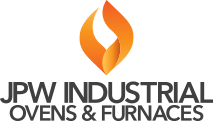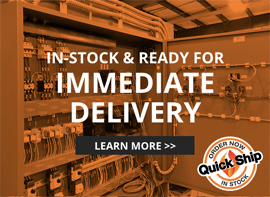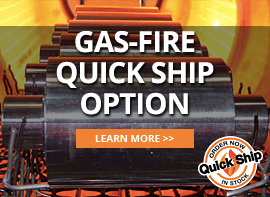Understanding Inverter-Duty Motors: What They Are and How They Work
Industrial conveyor and continuous process ovens are essential for many manufacturing processes, from drying and curing to sintering and tempering. These ovens are designed to handle heavy loads and operate at high temperatures while maintaining tight and precise speed control. One of the critical components that contribute to the efficiency and reliability of these ovens is the motor. In recent years, there has been a shift towards using inverter-duty motors in industrial conveyor oven design due to their unique characteristics and advantages over traditional motors. But why do conveyor oven applications favor inverter-duty motors? Please keep reading to learn more about these motors and why they’re the preferred choice in conveyor ovens.
What are Inverter Duty Motors?
Inverter duty motors are specialized motors that can handle the fluctuating demands of variable speed applications. For instance, conveyor ovens often require low RPM to ensure even cooking or heating. However, the same conveyor might need to operate at much higher RPMs when transporting empty trays or when fewer items are inside the oven. This constant speed shift can cause wear and damage to standard motors. Inverter-duty motors sidestep these issues by creating higher torque at lower RPMs.
The Advantages of Using Inverter Duty Motors
Inverter duty motors offer several advantages over standard motors in conveyor ovens. Their efficiency shines through when the motor only needs to turn at a low RPM to keep the belt moving. Inverter duty motors have low vibration and noise levels, making them an excellent choice for businesses interested in reducing noise pollution. They also have high thermal limit protection, built to withstand high temperatures.
Maintenance Requirements for Inverter Duty Motors
While inverter-duty motors require less maintenance than traditional motors, they still need attention to operate efficiently. Regular inspection of the insulation system, bearings, and fans will help to identify any potential issues before they cause problems. Clean and replace the filters regularly to maintain proper airflow, which will help prevent overheating.
Choosing the right motor and variable frequency drive (VFD) combination for the specific application is also important to ensure optimal performance. In industrial ovens, VFDs are commonly used to regulate the temperature and airflow within the oven, allowing for more precise and efficient heating process control. The correct size motor with the proper voltage and frequency rating will provide long-term performance and reliability.
How Can JPW Help?
JPW Ovens & Furnaces provides reliable and efficient solutions for your conveyor and continuous process oven needs. One of the ways JPW achieves this is by utilizing inverter-duty motors. These motors are designed to handle the unique demands of VFDs and provide precise speed control for consistent and accurate heat treatment. By using inverter duty motors, JPW ensures that your next conveyor or continuous process industrial oven is durable, efficient, and reliable. The JPW Industrial Ovens & Furnaces team is committed to providing the best products and services for all their customers, making them a top choice for your industrial oven needs.
In addition to an excellent, American-made product, you receive more than just a reliable, well-constructed oven when you purchase one of our ovens. You receive unmatched customer service and our commitment to quality and service. Contact us today to see if an inverter motor is the right choice for your next industrial oven.


